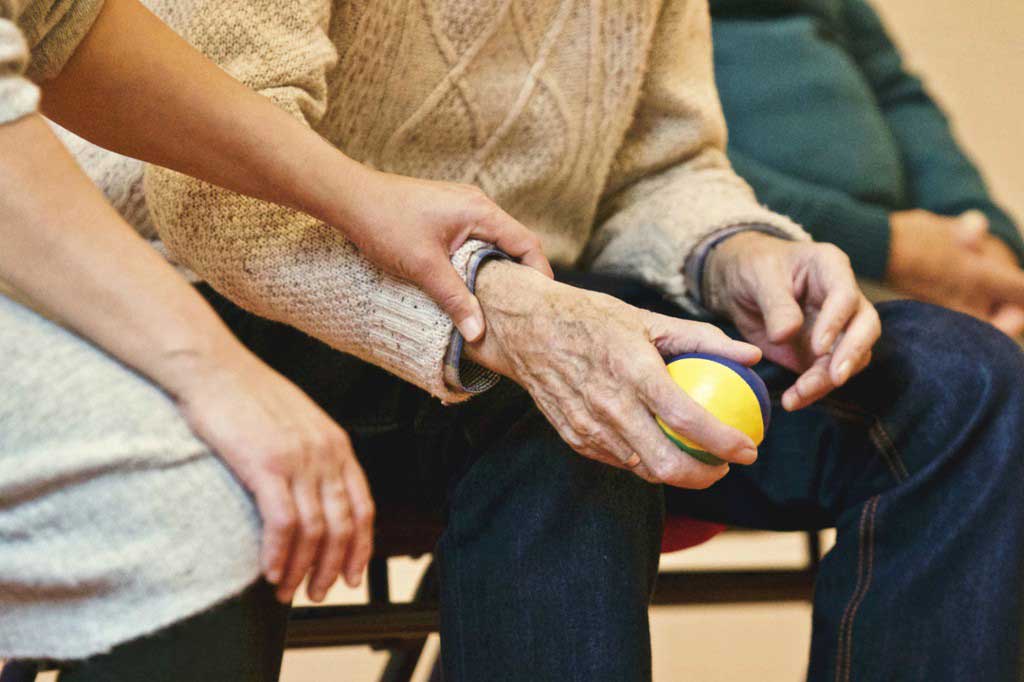People 'more likely to die on their birthday'
Older people
“Birthdays are deadly,” according to the Daily Mail, which added that we are 14% more likely to die on our birthday. The news is based on a Swiss study that set out to determine the relationship between...
“Birthdays are deadly,” according to the Daily Mail, which added that we are 14% more likely to die on that day.
The news is based on a Swiss study that set out to determine the relationship between the day of our birth and the day of our death by analysing the death records of more than two million people. There are two theories that the researchers wished to explore. One suggests that individuals can postpone their death to survive a major holiday or other significant event, in this case birthdays, while the other argues that deaths are more likely to occur on birthdays. The reasons for this could be quite diverse, from the stress of getting older and evaluating our lives to drinking too much alcohol to celebrate a birthday.
Unfortunately, the results of the study support the “anniversary reaction” or “birthday blues” hypothesis: 13.8% more people died on their own birthday than on other days of the year. When the results were further analysed by age, the increase in deaths on birthdays was only observed for individuals aged 60 and older. Common causes of birthday deaths were heart problems, cancer, stroke disease in women and suicides and accidents in men. However, there were limitations to the study, which included data from records stretching back as far as the late 1960s, making some results questionable. Furthermore, the exact reasons as to why birthdays might raise the risk of death are still unclear.
While the data is interesting, having a birthday is inevitable, so what do these results mean for us? Perhaps the best thing to do is just to enjoy our birthdays while remembering that our health tends to decline with age. The best present we can give ourselves is to adopt healthy habits and not worry too much about our birthdays when they come.
Where did the story come from?
The study was carried out by researchers from universities and hospitals in Switzerland. The study was published in the peer-reviewed medical journal, Annals of Epidemiology. No sources of funding for this research were declared.
The papers generally reported this research well, although some of the phrasing used to explain the risk was slightly ambiguous. For example, The Daily Telegraph’s headline said: “We are more likely to die on our birthday than any other day,” which could imply that the risk on our birthday is greater than on all the other days combined. In fact, the researchers found a greater risk of death on our birthdays only when compared with any other single date in the year.
What kind of research was this?
One theory (the “anniversary reaction” or “birthday blues” hypothesis) suggests that people are more likely to die on “event days” such as their birthday, while others argue that the risk is actually lower than on regular days (the “death postponement" hypothesis). This research aimed to settle the matter by examining the relationship between people’s birthdays and the day of their death. To do this, the researchers performed a modelling study that analysed Swiss mortality statistics between 1969 and 2008.
This is an appropriate study design to answer this question, and it used a large dataset. However, the results do not provide a mechanism for understanding how birthdays could affect the risk of death.
What did the research involve?
The researchers analysed Swiss mortality statistics from 1969 to 2008. This included data from 2,380,997 dead people. The difference between the birthday and “death day” of each person was mapped on a year circle (-182 days to +182 days) that showed how far the two events deviated. This was important as it showed more detailed patterns than simply whether someone was likely to die on their birthday. For example, it was able to detect whether people were more likely to die soon after their birthday, which might have suggested some residual effect.
The results were then aggregated. The researchers also looked at the cause of death to help understand whether any fluctuations might be due to factors such as accidents and suicides.
What were the basic results?
The researchers found that 13.8% more deaths occurred when the difference between the day of birth and the day of death was zero; in other words, on a person’s birthday. The increased risk in men (14%) was similar to women (13.6%). When the results were analysed by age, the higher rate of deaths on birthdays only occurred in men and women aged 60 or older (whose increased risk ranged between 11% and 18%).
The researchers then tried to analyse what caused the deaths beyond the normal expected rate (referred to as an “excess”). A birthday excess was found for deaths due to cardiovascular diseases and cancer. In women, there was also a birthday excess in deaths due to cerebrovascular disease (strokes). In men, there was also a birthday excess in violent deaths, including suicides, accidents and falls.
The researchers found that in the days following a birthday there were fewer deaths from cancer, compensating for the excess mortality on birthdays. On the other hand, the number of deaths from falls rose from four days before birthdays.
How did the researchers interpret the results?
The researchers concluded that: “Birthdays end lethally more frequently than might be expected. This is mainly because of cardiovascular and cerebrovascular diseases, where the effects are stronger in women than in men, and also because of suicides and accidents, where the excess is only confirmed in men. Surprisingly, cancer deaths also showed up as a birthday excess.”
They went on to suggest mechanisms for these effects. For example, vascular events may peak on birthdays due to stress, whereas suicides and accidents might be due to sociological and psychological issues to do with birthdays, or the use of alcohol. However, these explanations are only put forward as theories, and are not directly supported by the study’s data.
Conclusion
There are directly opposing theories arguing respectively that people are either more likely or less likely to die on their birthday. This study aimed to settle this by looking at birth and death data from a large national database. The results of the study supported the “anniversary reaction” or “birthday blues” hypothesis of a greater risk of death on one’s birthday, as 13.8% more deaths occurred on the dead person’s birthday. When the results were analysed by age, the excess deaths on birthdays was only apparent in men and women aged 60 or older.
The researchers tried to account for uncertainties in data entered into the database, but could not exclude the possibility that certain patterns had been introduced into the data. For example, unknown birthdates could have been attributed to the same date as the day of death or vice versa.
The researchers did look at effects of the first and the 15th day of the month, which, they reported, tends to be allocated as a day of birth or death if the exact date is unknown. Although they did find an increase in birthdays on the first day of the month, they found no differences in the frequency of death on this day compared with other days, and therefore included all data in the analysis.
Further research is required to understand these findings better. Examining large mortality databases from other countries would also be valuable to see whether similar or different results are seen. The researchers proposed mechanisms that could account for any differences, but did not test them. If this phenomenon was shown to occur widely, it would be interesting to explore whether there are any measures that can be put in place to reduce the risk of deaths on birthdays.






 Subscribe
Subscribe Ask the doctor
Ask the doctor Rate this article
Rate this article Find products
Find products








